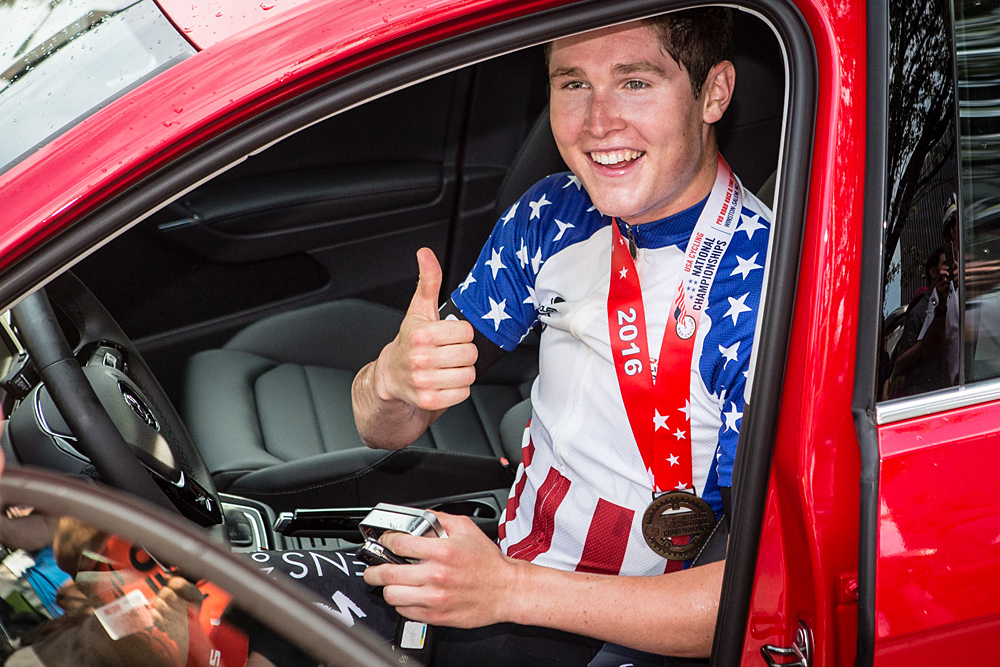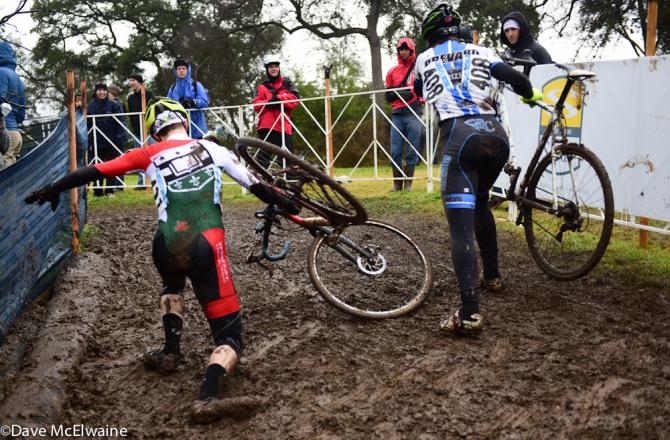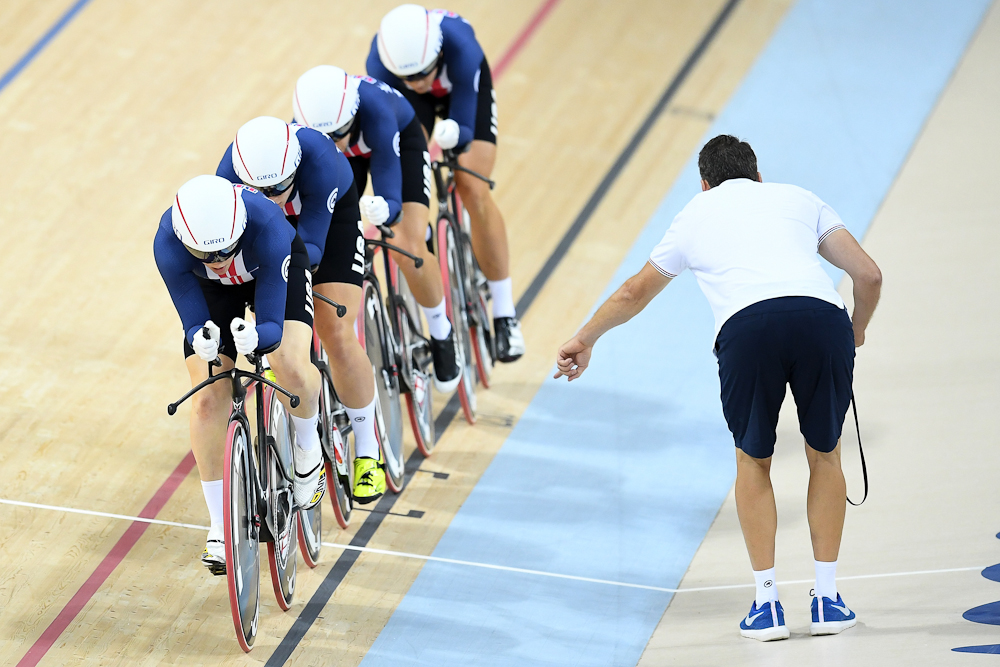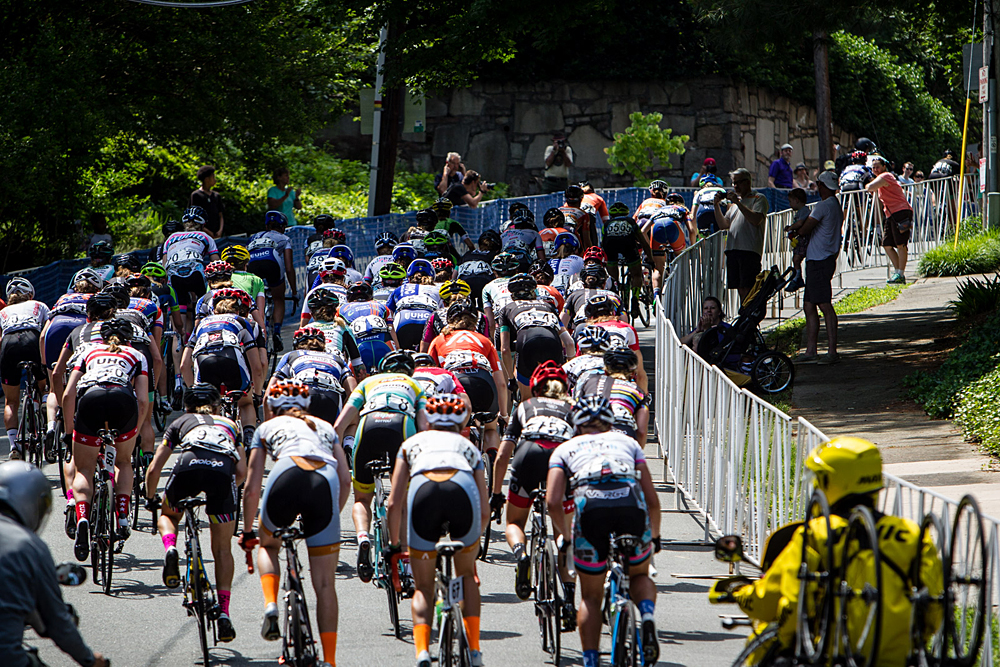New rules for USA Cycling usher in women's beginner category, radios for elites
Door opening for Pro Continental, WorldTour riders to compete in more national events?




USA Cycling made some major changes to its regulations for 2017, and as the season gets underway, racers will find some new opportunities in the red ink. Most notably, there will now be a women's beginner category 5, and race radios will be allowed in category 2 events and above (with the exception of UCI 1.2 and 2.2 races, where the rules preclude them).
USA Cycling's technical director Chuck Hodge explained that the rules (highlighted changes available here) were decided upon after extensive discussions with stakeholders, and were approved by the board in December.
The addition of a women's category 5 is a major step for the development of the sport where previously, women had just one beginner category 4, and once they graduated were most often thrust into a combined Pro-1,2,3 category event.
"I can't imagine going from category 4 to racing against someone who can win WorldTour races, but that is exactly what we've been subjecting women to," Hodge told Cyclingnews. "It's that drastic. This is one solution, giving women a benchmark. They can get a sense of accomplishment upgrading from 5 to 4, and hopefully become better prepared for the jump to category 3."
Because the rules were approved after many races had made their plans for 2017, Hodge thinks most events will simply combine category 4 and 5 women, but he sees the rules as giving more options for combined fields such as separating Pro 1,2 and women 3,4 and 5.
"It will take time for [local associations] to implement this and figure out what is best for their region, but we needed to be proactive and strengthen women's racing."
Women who recently signed up for new category 4 licences are allowed to downgrade, and Hodge said they had already received several requests to do so. Moving out of the beginner category requires riders to score points, but they won't be based solely on race experience.
Get The Leadout Newsletter
The latest race content, interviews, features, reviews and expert buying guides, direct to your inbox!
"Beginner programs and clinics will apply to the upgrade. There are several beginner programs across the country," he said, adding that often the experience gained in a controlled learning environment can be more beneficial than racing.
Radios and participation rules
USA Cycling previously followed the UCI's example and restricted radio use, but this year will allow their use in category 2 and above. If a race is combined with lower categories, no radios will be allowed.
The UCI has relaxed its regulations for race radios in recent years, after an attempt to ban them altogether in 2011 was met with much resistance from teams and riders. However, UCI category 1.2 and 2.2 races (such as the Joe Martin Stage Race, Tour of the Gila, Cascade Classic and Reading 120) will still prohibit radio use.
On a related note, USA Cycling revised language in its rules (1H9) after "working closely with the UCI to open up more US races to Pro Continental teams", Hodge said. The current UCI rules preclude Pro Continental teams from competing in most national events.
The new USA Cycling rule "removes restriction on US Pro Continental teams competing in domestic events" according to the regulation change document. "This allows teams such as UnitedHealthcare and Team Novo Nordisk to compete in local events. Allows WorldTeam riders to compete on a limited basis with permission. Members of World Teams need to contact the Technical Department at USA Cycling for permission to compete in all but UCI events."
The issue of top pros racing domestic events first came to a head back in 2009 when Lance Armstrong wanted to race with his Astana team at the UCI 2.2 Tour of the Gila. The UCI decided to clamp down on the rule 2.2.009 restricting Pro Continental and WorldTour teams from racing at a lower level or national events.
Since then, Hodge says Continental teams have decided against moving up to the Pro Continental level because it would severely restrict their domestic racing schedule. But this year it's become a catch-22 because the Tour of California's inclusion in the WorldTour now prohibits Continental teams from racing there.
"The rules are hindering development," Hodge said, noting that they were written in a "Euro-centric" model where teams can easily travel to appropriately ranked events.
Other rule changes of note:
- The UCI overhauled rules for track racing, and USA Cycling's revisions reflect those changes, but mainly for the elite levels and national championships. "Where it makes sense, we use UCI rules - in particular for events that may select riders for international competition, for example, the national championships for juniors. Most grassroots racing will be unaffected," Hodge said.
- The 9-10 age group for national championships has been eliminated, but there will still be non-championship youth races.
- The 18 master's tandem road national championships events have been eliminated. USA Cycling will still run the Para tandem categories for sight-impaired athletes.
- USA Cycling eliminated the restriction on one-day licences for 'experienced' (riders previously licenced above cat 5), which was previously one per year. Racers can now choose to buy an annual licence or pay per race.
- Allows feeding in cyclo-cross races outside the pit area.
- Removes set call-up/qualifying rules for Cyclo-cross nationals, and specifies they will be published six months prior to the race.
- iPod/audio devices (separate from two-way race radio) are now explicitly prohibited in all races.

Laura Weislo has been with Cyclingnews since 2006 after making a switch from a career in science. As Managing Editor, she coordinates coverage for North American events and global news. As former elite-level road racer who dabbled in cyclo-cross and track, Laura has a passion for all three disciplines. When not working she likes to go camping and explore lesser traveled roads, paths and gravel tracks. Laura specialises in covering doping, anti-doping, UCI governance and performing data analysis.